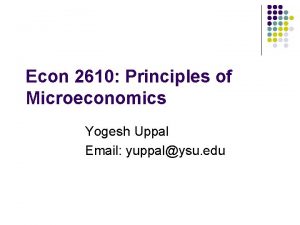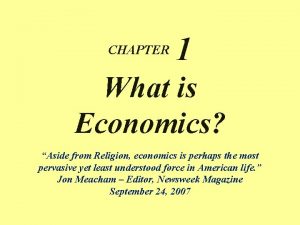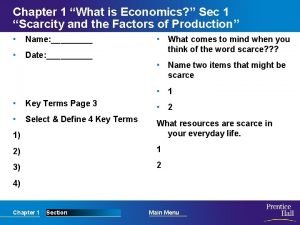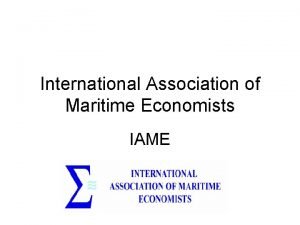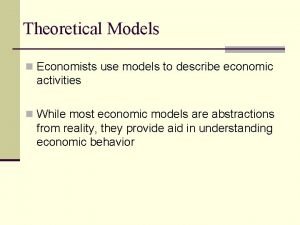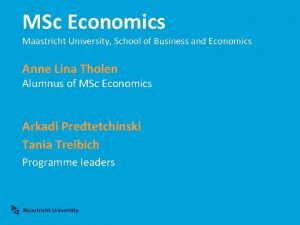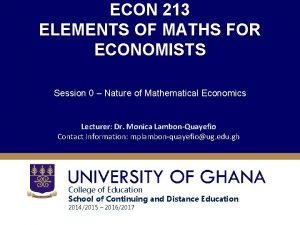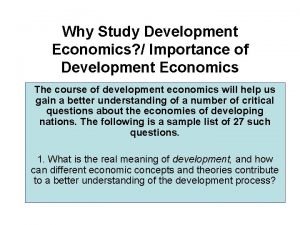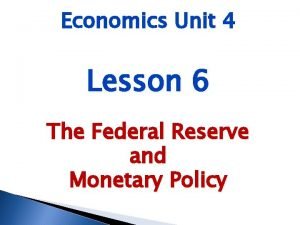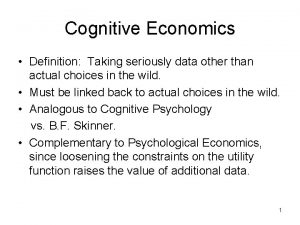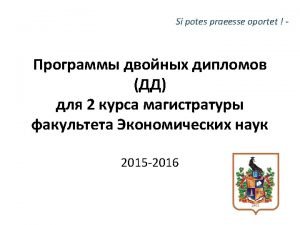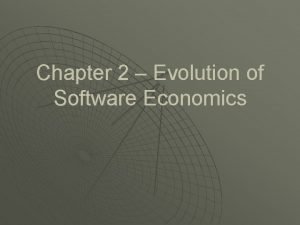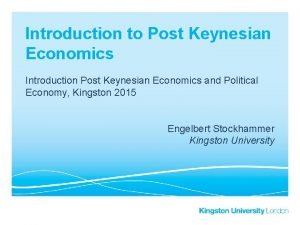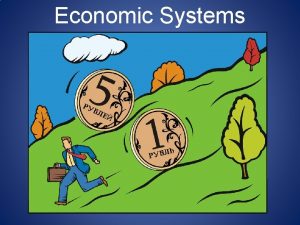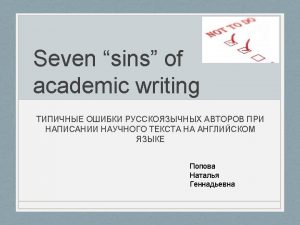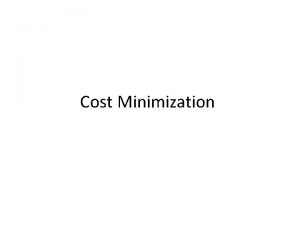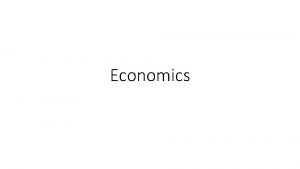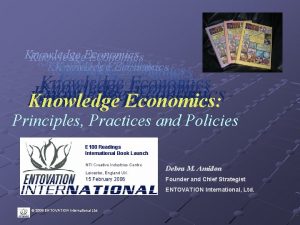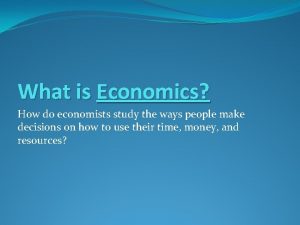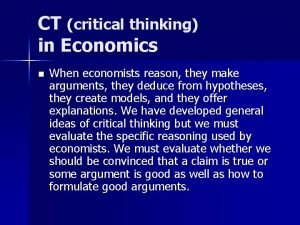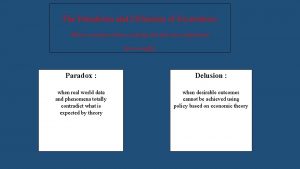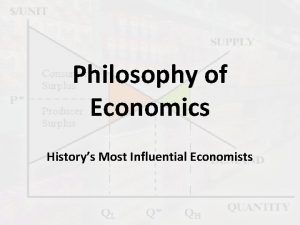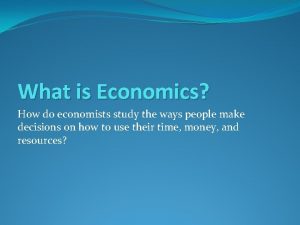What is Economics What economists do Economics as














- Slides: 14

What is Economics? What economists do?

Economics as Study of Production & Distribution Study of particular terrains of human activity – sphere of production/work – sphere of distribution » of consumer goods » of producer goods Classical economics focused on work – unlike Physiocrats (land) & merchantilists (money) Focus on work result of centrality of work in capitalist society

Centrality of Work - Historically Development of Capitalism has involved ever more thorough subordination of life to work – business tries to put more and more people to work – business has extended itself not only geographically but also into every sphere of life In 18 th - 19 th Century, central social conflicts were around length of working day Business expanded, workers resisted, eventually forced down, 15 hrs to 12 hrs to 10 hrs to 8 hrs Business response: colonization of free time

Human Activity Work

Centrality of Work - Today 8 hours + By Day 5 days + By Week 50 weeks + 7 ys- By Year 7 yrs- By Life-Cycle

Labor Theory of Value Given recognition of centrality of work Classical economists had LABOR theory of value Economics was "Political Economy" – – – study of work study of socio-political institutions study of conflicts over work, distribution, etc. But "labor" theory became a liability Used by critics of capitalism, so it was abandoned

From Labor to Choice Mainstream economics abandoned "labor" theory of value and redefined itself in terms of "choice" This was "neoclassical" revolution Economics as "theory of allocation of scarce resources among competing ends" Two key concepts: choice, scarcity – choice = decision making of individuals, firms, govt – scarcity = finite

Choice Microeconomics = choices of individuals & firms Macroeconomics = choices of governments, micro choices in background Choice Theory = theory of preference ranking – A prefered to B – B prefered to A – indifferent between A & B Opportunity Cost

Scarcity & Opportunity Cost Choosing one thing means giving up something else, "cost" of choice = what is given up Production-possibility frontier guns A = more guns, less butter B = more butter, fewer guns butter

Is Economics a Science? From 'Political Economy' to 'Queen of Social Science" Economics shares hypothetico-deductive method with 'hard' sciences But pretense of "positive" science is absurd – choice of subject & methods always involves values – even true in 'hard' sciences – changes in paradigm over time in all fields

Critiques of Two Approaches Critique of traditional "political economy" – largely ignored sphere of consumption which with reduction in working day has become critical in understanding social development Critique of economics as choice theory – largely ignores centrality of work, relegates its study to other social sciences – largely ignores » 1. forces that shape constraints on choice » 2. systematic manipulation of 'scarcity'

Sphere of Consumption Always existed Importance grew historically – with workers' success in reducing working day, gaining higher wages, expanding "demand" – Business colonization of "consumption" Some social theorists have argued sphere of consumption has displaced work as central organizing institution of society But much consumption a function of work

Conclusion Definition of economics not that important In terms of understanding the field look at what economists DO, policy oriented - managers of capitalism What matters for you as an individual is identifying what is important Disciplinary divisions = obstacle to understanding Study what you need to to understand what you think is important

--END--
 A purely competitive seller is
A purely competitive seller is Yogesh uppal
Yogesh uppal To help unscramble cause and effect, economists
To help unscramble cause and effect, economists Chapter 1 section 1 scarcity
Chapter 1 section 1 scarcity International association of maritime economists
International association of maritime economists Economists use models to
Economists use models to Maastricht university economics and business economics
Maastricht university economics and business economics Econ213
Econ213 Why study development economics
Why study development economics Unit 4 lesson 6
Unit 4 lesson 6 Cognitive economics definition
Cognitive economics definition Erasmus school of economics
Erasmus school of economics Evolution of software economic
Evolution of software economic Classical economics vs keynesian
Classical economics vs keynesian Command economy defintion
Command economy defintion

